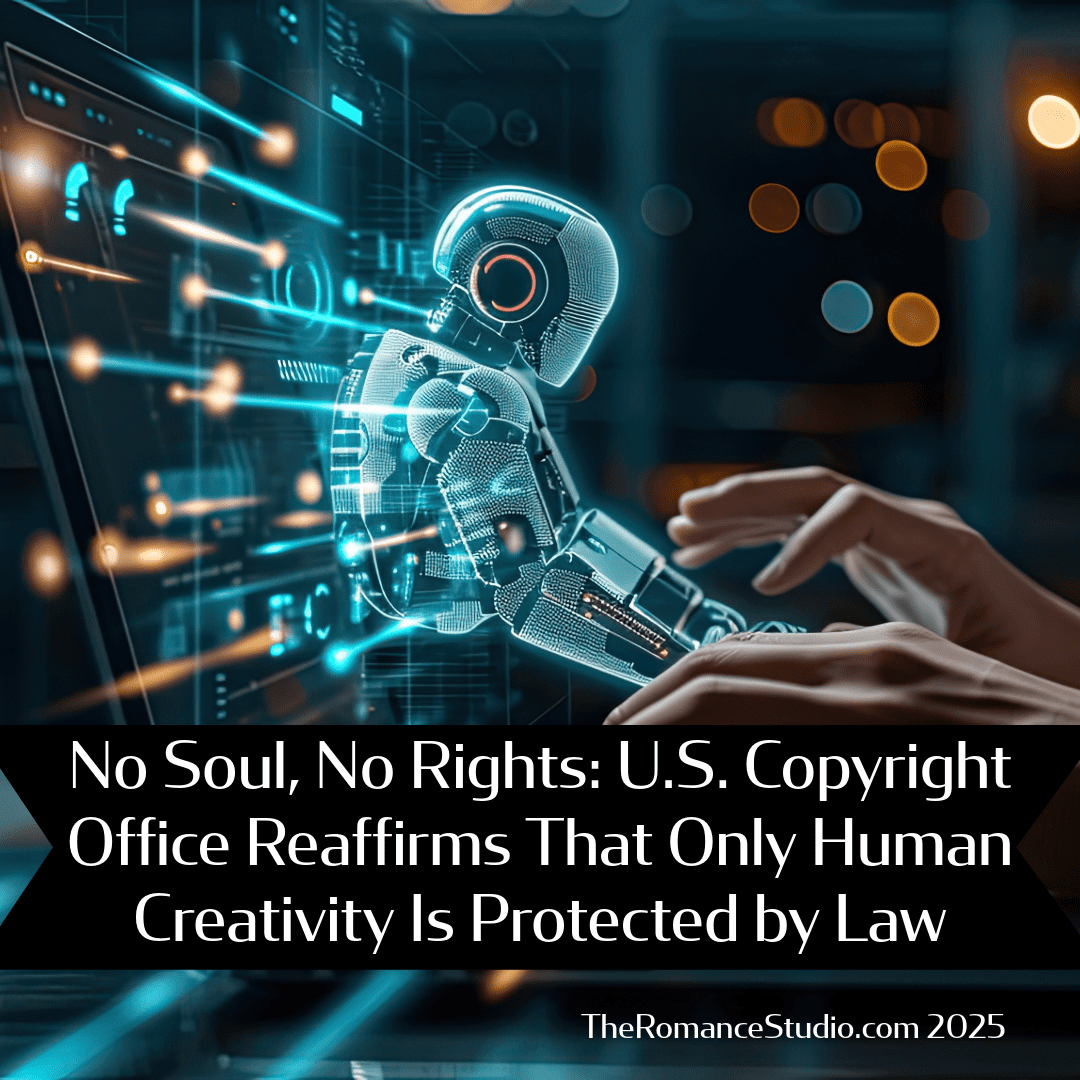No Soul, No Rights: U.S. Copyright Office Reaffirms That Only Human Creativity Is Protected by Law
In a digital age increasingly dominated by artificial intelligence, the U.S. Copyright Office has drawn a firm line in the sand: copyright is for humans—full stop.
In its newly released report, Copyright and Artificial Intelligence: Part II – Copyrightability, the Copyright Office doubled down on a fundamental principle of copyright law: only works created by humans are eligible for copyright protection. Despite the rising prevalence of generative AI in creative industries, the Office maintains that existing copyright law is sufficient to address questions of AI involvement—no legislative overhaul required.
“A work must be created by a human to qualify for copyright protection,” the report reaffirms, echoing its earlier 2023 findings. “This has always been a bedrock requirement of U.S. copyright law.”
AI as a Tool, Not an Author
While the report slams the door shut on fully AI-generated works receiving copyright protection, it does leave room for nuance—particularly when human authors use AI as a creative assistant rather than a replacement.
According to the Office, copyright may still apply if AI-generated elements are used within a broader, original human-authored work. In such cases, the protection only covers the human-authored contributions, not the machine-generated content itself.
For example, if an author uses AI to brainstorm dialogue or create a rough draft and then significantly revises or builds upon it with original writing, that revised work may qualify for copyright—so long as the final product reflects the creator’s unique expression.
However, the Office is clear: simply inputting a prompt into an AI model does not make someone an “author.” Nor does selecting from AI-generated images, text, or code meet the legal threshold for originality.
“Human contributions to AI-generated outputs must be analyzed on a case-by-case basis,” the report explains. “The level of originality must be sufficient to qualify as a human-authored work of authorship.”
A Global Consensus on Human Authorship
The U.S. isn’t alone in this stance. The report outlines how no country currently recognizes fully AI-generated works as copyrightable, reinforcing a growing international consensus: authorship implies agency, and agency belongs to people, not machines.
While other nations vary in how they approach AI-assisted works, the underlying principle—that human creativity is the foundation of copyright—remains consistent across borders.
What This Means for Creators, Developers, and Publishers
This report arrives at a critical moment, as the creative industries grapple with a surge in AI-generated books, music, and artwork. The implications are clear:
-
Authors using AI tools must ensure their human input is significant and demonstrable if they want copyright protection.
-
Publishers and platforms must vet submissions to determine what role AI played in their creation.
-
Developers of generative AI systems cannot claim copyright for works created by their models, limiting their ability to monetize or license those outputs as intellectual property.
A Wake-Up Call for the Creative Economy
The Copyright Office’s firm stance sends a clear message: copyright is not up for grabs in the age of AI. The law still protects the spark of human imagination, not algorithmic mimicry.
For creators, this is both a warning and a reassurance. AI may help you write faster or explore new ideas, but if the soul of the work isn’t yours, neither are the rights.
In the end, the report affirms a truth every artist already knows: while AI can generate, only humans can create.

